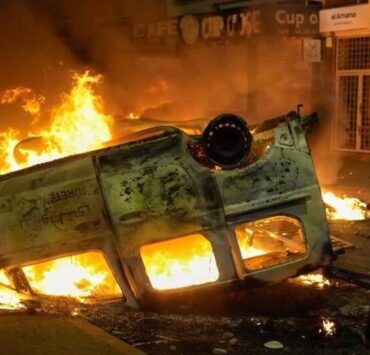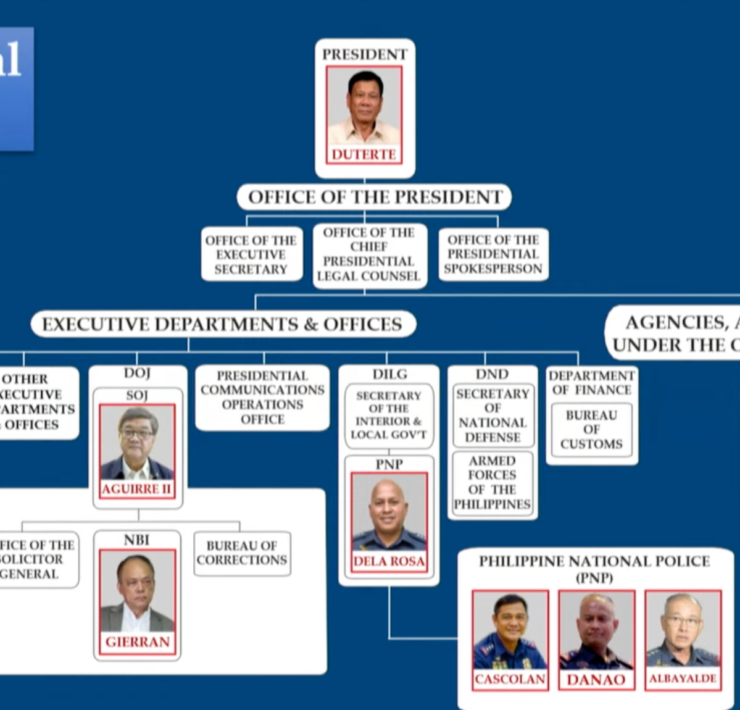A republic of ghosts

This holy All Saints’-All Souls’ weekend (with its ghoulish Halloween counterpart), may we contemplate the fleeting nature of life, the exhilarating wonders it offers, and the crushing pain it brings.
Still, we must soldier on in this republic of ghosts, this nation of plunderers who wander like the restless spirits of the damned, who snatch for their hollow selves the bread of the poor and feast on their blood. On my mind is National Artist Benedicto “BenCab” Cabrera’s stirring painting “My Sad Republic,” of a person in a squatting position shrouded in a faded Philippine flag, with what looks like a crumpled newspaper on the ground in front of him.
Ghost infrastructure projects (flood control, farm-to-market roads, dams, dikes, bridges, etc.), ghost employees, ghost voters, ghost scholars, ghost schoolrooms, ghost government contract workers, ghost lawmakers (senators and congressmen) who collect their salaries and enjoy the perks but hardly show up for work, ghost Pantawid Pamilyang Pilipino Program beneficiaries, ghost patients and hospital bills, ghost procurements, ghost signatories, even ghost nongovernmental organizations through which government funds may be channeled or laundered.
Ours is a republic of ghosts. Ghost here refers to nonexistent projects, beneficiaries, and forged “proofs” of nonexistent deliveries of cash, goods, and services, while in darkened rooms, purloined public funds are delivered to the unintended. Creating ghosts is a most lucrative preoccupation of those with access to government funds, but who divert these to their own pockets and are seemingly unaware that the money or paper trail could catch up with them eventually, thanks hugely or partly to media efforts, as in the case of “pork barrel queen” Janet Napoles. Her conduits in government got their own comeuppance and served time—briefly, unfortunately—while she continues to spend her post-menopausal days behind bars.
For the past and present “Undas” season, church authorities have been discouraging “pagan”-inspired macabre ways for Halloween (an American import, pumpkins and all) but are instead promoting the celebration of the dear departed’s lives in solemn ways. There is a synchronicity in the way this year’s Undas season comes on the heels of the rising outrage against massive corruption, short of the people crying out for blood or calling for the heads of the plunderers to be served on bamboo poles.
Yeah, I’d like to watch a mock procession of severed heads done in papier-mâché, followed by a brass band playing Chopin’s “Marche Funèbre.” How’s that for Halloween-like magical realism? So operatic.
I never tire of recalling our school days when the Benedictine nuns sang in Latin “Dies irae, dies illa” in Gregorian chant on All Souls’ Day. Only after I read the English translation did I learn what it was all about. Only much later did I learn how important it was to composers such as Mozart and Verdi and even to contemporary musical giants like John Williams and Hans Zimmer. A liturgical classic, the lyrics tell of doom and dread, earthshaking when set to music. Taste versions of it on YouTube.
“Dies irae, dies illa/ Solvet saeclum in favilla/ Teste David cum Sybilla.” (Translation at the end of this piece.) The theme was derived from the prophet Zephaniah’s words, which should strike fear in the hearts of our republic’s incorrigibly corrupt officials and their accomplices.
“Jerusalem is doomed, that corrupt, rebellious city that oppresses its own people. It has not listened to the Lord or accepted his discipline. It has not put its trust in the Lord or asked for his help. Its officials are like roaring lions. Its judges are like hungry wolves, too greedy to leave a bone until morning … But the Lord is still in the city…” Ah, too greedy to leave even a token morsel.
But the prophet ends with a song of joy. And I think of the millions of Filipinos toiling abroad. “I will bring your scattered people home. I will make you famous throughout the world and make you prosperous once again.”
But as to striking fear in our hearts, this much-admired translation of the “Dies irae” by Dr. W.J. Jones should do the job. Those who defile our world with their foul words and evil deeds, hearken.
“Day of wrath and doom impending, / David’s word and Sibyl’s blending! / Heaven and earth in ashes ending!”
“Oh, what fear man’s bosom rendeth, / When from heaven the judge descendeth, / On whose sentence all dependeth!”
“Death is struck, and nature quaking, / All creation is awaking, / To its judge an answer making…”
—————-
Send feedback to cerespd@gmail.com





















